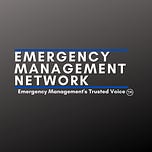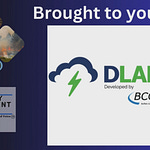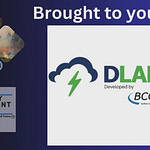I was at the IAEM USA Board Retreat this week. Most people think of the word retreat as a vacation. However, it was three days of board meetings, workshops, and other business that we had to work through.
On the flight to Colorado Springs, I was doing my homework, reading the magazine the current president gave to the board members. It was the typical industry standard mag with leadership articles and what individual responsibilities each board member has. However, one piece stuck out to me. It was about Stewardship. Jeff De Cagna’s view on leadership and what it means boils down to the fact that we are stewards of the organization we belong to.
It reminds me of Jim Collins's book, “From Good to Great.” He looked at how organizations moved from Good to sustainable long-term differences, making them Great.
Stewardship is a concept that has been introduced previously to most of us. We have been learning about it since we were children. We have been taught to be stewards of our environment, our schools, and the organizations we work for. Public employees need to be stewards of the public interest and money. However, this piece looks at stewardship not only counter to what we think leadership is, but De Cagna also challenges the idea of what leading an organization is about.
Let’s look at stewardship and how we should embrace and implement the ideas in our professional and personal lives.
Stewardship has been around for centuries, involving the responsible management and protection of resources. It can apply to many different areas of life, including financial resources, natural resources, and even personal relationships. At its core, stewardship is about taking care of what we've been given to pass it on to future generations in better condition.
Stewardship is essential for individuals, communities, and even nations to consider. To be good stewards of our resources, we must first recognize that we are not the sole owners of these resources. Instead, we are simply caretakers for a time, responsible for managing them wisely and using them for the benefit of all.
Financial Stewardship
One area where stewardship is critical is in the management of financial resources. Whether we are talking about personal finances or the finances of an organization, good stewardship requires careful planning, budgeting, and investing. It also involves being mindful of our spending habits, avoiding waste and extravagance, and being generous with our resources when possible.
Financial stewardship is a critical concept that involves managing financial resources wisely and responsibly. It is an essential part of disaster management, as it helps to ensure that resources are used effectively and efficiently to respond to disasters and support recovery efforts.
In disaster management, financial stewardship involves careful planning and budgeting to ensure resources are available when needed. This includes identifying potential funding sources, establishing monetary policies and procedures, and developing contingency plans to address unforeseen events. It also involves being mindful of spending habits and avoiding waste and extravagance, as resources may be limited and must be used judiciously.
Financial stewardship also involves investing in affected communities' long-term recovery and resilience. Financial stewardship may include supporting economic development initiatives, promoting sustainable practices, and investing in infrastructure and other critical needs. It also involves being generous with resources when possible, as disasters can devastate individuals and communities and may require significant support.
There are several ways that financial stewardship can be implemented in disaster management. One approach is establishing a transparent financial management framework that outlines roles and responsibilities, sets monetary policies and procedures, and identifies potential funding sources. This framework should be regularly reviewed and updated to remain effective and relevant.
Another approach is to promote transparency and accountability in financial management. This involves ensuring that monetary transactions are properly documented and reported, and that stakeholders are informed about resource use. It also involves monitoring and evaluating financial management practices to identify areas for improvement and ensure that resources are being used effectively.
Financial stewardship in disaster management requires collaboration and partnership between government agencies and non-governmental organizations. In disaster management, financial stewardship is about managing resources effectively and fostering collaboration and cooperation between organizations and stakeholders. Effective disaster response and recovery require a coordinated effort between government agencies, non-governmental organizations (NGOs), and the private sector, all working together towards a common goal.
Collaboration and partnership are essential in disaster management because they help to maximize the impact of available resources and expertise. Government agencies, NGOs, and the private sector bring unique strengths and capabilities. By working together, they can achieve more than any organization could. For example, government agencies can provide funding and resources, NGOs can bring specialized expertise and on-the-ground support, and the private sector can offer logistical and technical assistance.
Financial stewardship in disaster management requires collaboration and partnership because it helps ensure that resources are used effectively and efficiently. When different organizations work together towards a common goal, they can avoid duplication of effort and better use available resources. Additionally, collaboration and partnership can help to ensure that resources are distributed equitably and that vulnerable populations are not left behind.
One example of effective collaboration and partnership in disaster management is the United Nations Office for the Coordination of Humanitarian Affairs (OCHA). OCHA works with governments, NGOs, and other stakeholders to coordinate worldwide humanitarian responses to disasters and emergencies. OCHA helps to ensure that resources are distributed equitably and that vulnerable populations are reached with essential services and support.
Natural Resource Stewardship
Another area where stewardship is critical is in the management of natural resources. We are all familiar with the consequences of environmental degradation, including pollution, climate change, and loss of biodiversity. As stewards of the planet, we are responsible for caring for the natural resources that sustain us, including clean air and water, fertile soil, and diverse ecosystems.
Natural resources play a critical role in disaster management, as they provide essential services and goods that support human life and economic activities.
Flooding, hurricanes, and wildfires can severely impact water, air, and soil quality. Disasters can cause contamination of water and air quality, soil erosion, and loss of habitat and biodiversity. Disaster management must consider the impact on natural resources and implement measures to protect and preserve them during and after the disaster.
Natural resources such as forests, oceans, and fisheries provide essential goods and services to support human life and economic activities. Forests provide timber, paper, other products, and ecosystem services such as carbon sequestration, watershed protection, and biodiversity conservation. Fisheries provide food and employment opportunities for millions of people worldwide. It is essential to consider the impact of disasters on natural resources and implement measures to manage and restore them sustainably.
Natural resources can play a critical role in disaster response and recovery. For example, forests can provide timber for shelter, and wetlands can provide biological flood control and water filtration. We must consider how natural resources can support response and recovery efforts and promote sustainable livelihoods for affected communities.
Emergency management professionals must consider natural resources and their importance in supporting human life and economic activities. By protecting and preserving natural resources, disaster management can promote resilience, sustainability, and long-term prosperity for affected communities.
Community Stewardship
We need to apply the ideas of Stewardship to our relationships. As members of the emergency management community, we are responsible for caring for one another and working together to create a better world. As community members, we are responsible for caring for one another and working together to create a more just and equitable society.
One aspect of stewardship in our relationships with others is advocating for and creating sustainable organizations. This involves ensuring that our organizations are built in an environmentally responsible and economically sustainable way. By working together to create sustainable organizations, we can leave a profession that future generations want to be part of.
Another aspect of stewardship in our relationships with others is promoting equality in disseminating resources. This means recognizing that only some have the same access to resources and working to create a more just distribution opportunity. It might involve advocating for policies that support affordable education, paid internships and employment opportunities in all private and government areas regardless of socioeconomic status.
Finally, stewardship in our relationships with others also promotes peace and understanding. This means overcoming cultural, religious, and racial divides and promoting empathy and compassion for all people. We can create a more harmonious and peaceful world by fostering a culture of understanding and respect.
Overall, stewardship in our relationships with others requires us to recognize our interconnectedness and take responsibility for the well-being of our communities and the planet. By working together and promoting sustainability, equality, and understanding, we can create a more just and equitable world for all.
Stewardship is a vital concept that has implications for all areas of life. Whether we are talking about financial resources, natural resources, personal relationships, or global affairs, good stewardship requires responsible management and protection of our profession. By recognizing our role as caretakers of the profession and working together to promote sustainable practices and equitable outcomes, we can create a better world for ourselves and future generations of emergency managers.













Share this post